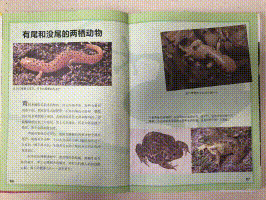初高中英语学习的区别与衔接(初高中英语知识衔接)
第一讲 语音和构词法
课前热身
I. 选出划线部分发音不同的一项
( ) 1. A. this B. thank C. think D. wealth
( ) 2. A. hold B. habit C. husband D. honest
( ) 3. A. hands B. cats C. goods D. beds
( ) 4. A. watched B. refused C. worked D. washed
( ) 5. A. rude B. ruler C. blue D. custom
II. 按要求写出下列单词的适当形式
1. slow (副词)__________ 2. success (形容词)__________
3. lazy (名词)__________ 4. appear (反义词)__________
5. intelligent (名词)__________ 6. pleasure (形容词)__________
7. interest (形容词)__________ 8. describe (名词)__________
9. detail (形容词)__________ 10. possible (副词)__________
语音
一、音标
1、元音:共计20个元音。元音可以分成单元音和双元音,其中单元音有12个,双元音有8个。
|
元 音 |
单元音 |
前元音[i:] [І] [e] [æ] |
|
中元音[З:] [ə] [Λ] | ||
|
后元音[ɔ:] [ɒ] [u:] [ʊ] [ɑ:] | ||
|
双元音 |
开合双元音[aI] [eI] [ɔI] [əʊ] [aʊ] | |
|
集中双元音[Iə] [eə] [ʊə] |
2.辅音:共计28个辅音。辅音可以分成爆破音、摩擦音、破擦音、鼻音和舌侧音。
|
辅 音 |
爆破音 |
清辅音[p] [t] [k] |
|
浊辅音[b] [d] [g] | ||
|
摩擦音 |
清辅音[f] [s] [θ] [∫] [h] | |
|
浊辅音[v] [z] [ð] [ʒ] | ||
|
破擦音 |
清辅音[tʃ] [tr] [ts] | |
|
浊辅音[dʒ] [dr] [dz] | ||
|
鼻音 |
浊辅音[m] [n] [ŋ] | |
|
舌侧音 |
浊辅音[r] [l] | |
|
半元音 |
[w] [j] | |
二、音节的划分
一般来说,一个单词中有几个元音音素就有几个音节。每个音节都是由一个元音和它前、后的辅音构成的。单词的发音是由组成单词的各个音节的发音组合而成的。
双音节单词的音节划分方法可归纳为“两分手,一归前或一归后”
1.“两分手”是指:当两个元音之间有两个辅音字母时,将两个辅音字母划分在前后两个音节里。如: better划分成bet ter; sister划分成 sis ter等。
注意:一些不允许“两分手”的情况,有:
a.辅音字符th, sh, ch, ck, tch等,是不允许分割的。如:father只能划分成 fa ther等。
b.各种辅音连缀,如cr, pr, bl, fl等,也是不允许分割的。如: secret只能划分成 se cret等。
2.“一归前或一归后”是指:当两个元音之间只有一个辅音字母时,有时将这个辅音字母划分在前面的音节里,有时划分在后面的音节里。如:begin划分成 be gin等。
构词法
- 合成法
1. 合成名词
|
构成方式 |
例词 |
|
名词 名词 |
weekend/ classroom/ bookshelf |
|
名词 动词 |
daybreak/ waterfall |
|
名词 动名词 |
handwriting |
|
动词 名词 |
typewriter/ flashlight |
|
动名词 名词 |
reading room/ swimming pool |
|
形容词 名词 |
gentleman/ blackboard |
|
介词 名词 |
overcoat/ outline |
2. 合成形容词
|
构成方式 |
例词 |
|
名词 形容词 |
worldwide/ snow-white |
|
名词 现在分词 |
English-peaking |
|
名词 过去分词 |
man-made/ snow-covered |
|
数词 名词 形容词 |
two-year-old/ eight-metre-long |
|
形容词 名词 ed |
open-minded/ kind-hearted |
|
形容词 形容词 |
light-bright |
|
形容词 现在分词 |
easy-going/ good-looking |
|
副词 现在分词 |
hard-working |
|
副词 过去分词 |
well-dressed/ well-known |
3. 合成副词
|
构成方式 |
例词 |
|
形容词 副词 |
somehow/ everywhere |
|
副词 副词 |
however/ wherever |
|
介词 副词 |
forever |
4. 合成介词
|
构成方式 |
例词 |
|
副词 名词 |
inside/ outside |
|
介词 副词 |
within/ without |
|
副词 介词 |
into/ upon |
- 派生法
派生法是通过再词根上加前缀或者后缀构成一个新词。除少数前缀外,前缀一般改变单词意义,不改变词性;后缀一般改变词性,而词义不会发生变化。
1. 前缀
(1)否定前缀:dis-加在名词、动词、形容词之前;in-加在形容词、名词之前;im-加在字母m,b,p之前;il-加在以l开头的词前;ir-加在以r开头的词前;un-加在名词、形容词、副词之前。如:
agree-disagree correct-incorrect possible-impossible
leagal-illeagal regular-irregular finished-unfished
(2)表示其他意义的前缀:a-多构成表语形容词 awake醒着的,re-再 reuse,mis-错 misunderstand,auto-自动 automation,bi-双 bicycle,co-共同 cooperate,com-,con-共同,加强 combine 联合,de-离,加强,降 destruction破坏,e-,ex-出,否定,加强 export出口,en-, em-在内,用于,使enlarge 扩大,inter-在……间 international国际的,micro微 microwave微波,mini-微小 miniskirt迷你裙,neg-不,非 neglect忽视,non-不,非 nonprofit非赢利的,out-在外,除去 outside外面的,over-超出,反转 overweight超重的,post-在后 postwar战后的,pre-在前 predict预言,re-重复,相反recall回忆,sub-,suc-,sug-在下,次于 subway地铁,sur-超,外加 surface表面,tele-远 telescope望远镜,trans-超过,透过 transport运输,up-向上 upstairs在楼上
2. 后缀
(1)名词后缀
-er strange→ stranger陌生人 -ar lie→liar说谎者 -ee employ employee受雇者;雇员
-or act→ actor男演员 -ese China→ Chinese中国人 -ess act→ actress女演员
-ian history→ historian历史学家 - ist novel→ novelist小说家 -ance/- ence appear→ appearance出现;外貌 -ant serve→ servant仆人 -ing hear- hearing听力;听觉 ure/ ure fail→failure失败;没做到
-age short→ shortage短缺 -dom free--freedom自由;自主 -ness weak→ weakness虚弱;弱点
-th strong-strength力气;强项 -ion/tion/ ition/ ation attract→ attraction吸引
ment achieve→achievement成就 -y recoverrecovery恢复;痊愈
(2)形容词后缀
-al origin→ original最初的 -ble comfort→ comfortable舒适的 ful doubt→ doubtful怀疑的
-ed scare→ scared感到恐惧的 - ible access→ accessible容易取得的 -ing surprise→surprising 令人惊奇的
-ive act→- active积极的;活跃的 -ous anxiety anxious 忧虑的 -ern east→ eastern东方的;向东的
-y taste→ tasty美味的;可口的 -ish child→ childish孩子气的
(3)动词后缀
-(e)n, -fy, -ize
wide→widen beauty→beautify standard→standardize
(4)副词后缀
-ly, -ward(s)
wide→widely back→backward
- 转化法
英语中,有的名词可用作动词,有的形容词可用作副词或动词,这种把一种词性用作另一种词性而词形不变的方法叫转化法。
很多动词可以转化为名词,大多数情况下,意思没有多大的变化,有时意思有一定的变化,如: talk v,谈话→ talk n.谈话 I think we' d better finish the talk now.我想我们的谈话最好现在结束
有的名词可用作动词。如:nurse n.护士→ nurse v..护理;看护 She nursed her husband back to health.她看护她的丈夫,使他恢复了健康。
名词转化为动词 形容词转化为动词有的形容词可用作动词。如; better adj.更好的→ better v.使更好 We will try our best to better our living conditions.我们要尽力改善我们的生活状况。
有的形容词可用作名词 如: black adj.黑色的→ black n.黑色 You should be dressed in black at the party.你在晚会上该穿黑色礼服。
课堂训练




用所给单词的适当形式填空
1.Parents should teach their children to behave __________ (polite) in public.
2.You should depend on yourself. It’s you who make final __________ (decide).
3.There is more air __________ (pollute) in the city than in the country.
4.Always remember __________ (safe) must come first when driving on the road.
5.I don’t like cities. Cities are large and interesting but they are __________ (noise).
6.What do you think is the greatest __________ (invent) of the twentieth century?
7.My sisters want to be __________ (manage) when they grow up in the future.
8.Tom's father was so angry that he punished him for his __________ (careless).
9.This young __________ (climb) will take part in the climbing competition this weekend.
10.Our life is __________ (certain) better than it was twenty years ago.
11.It is none of your __________ (busy). Pay attention to your own homework.12.I don't think __________ (ride) a horse is cool in such cold weather.
13.After the terrible earthquake, many people in Japan became __________ (home).
14.My teacher always answers my questions __________(patient).
15.It's __________ (wind) today. You should not go out for a walk.
16.Don’t get close to the __________ (danger) places.
17.Ma Long is __________ (real) a good table tennis star in China.
18.If the problem can be __________ (peace) solved, we can avoid (避免) a lot of trouble.
19.This Chinese __________ (paint) was painted by Qi Baishi, a famous Chinese painter.
20.I looked around to see who the __________ (speak) was.
,免责声明:本文仅代表文章作者的个人观点,与本站无关。其原创性、真实性以及文中陈述文字和内容未经本站证实,对本文以及其中全部或者部分内容文字的真实性、完整性和原创性本站不作任何保证或承诺,请读者仅作参考,并自行核实相关内容。文章投诉邮箱:anhduc.ph@yahoo.com






